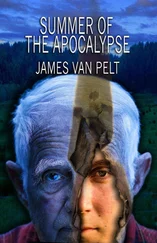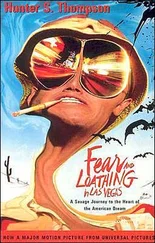Six hundred students, he thought, and Leslie’s not here to lighten me up.
He tapped the blinking reminder, calling up the two problem messages the v-Bill couldn’t handle.
Fourteen-year-old Kimo Yu’s mother died yesterday, the first message said, and she wouldn’t be able to make today’s field trip to the canyons of Canyon Lands National Park. William scrolled through her history: generally a type four, agressive/abstract learner, she’d made good progress in spatial visualizations and practical math. Her current area of interest, geology, didn’t fit her vocational potential profile well, but the DT had planned a course of study that would funnel her back into her strengths by the time she was sixteen. The DT highlighted a closeness to her mother and recommended a two week suspension of instruction, followed by a gradual reintegration into the program with an emphasis on spiritual and grief relieving literature. William noticed Guenther’s Death Be Not Proud on the reading list and deleted it. “Too grim,” he muttered.
He studied her image for a moment: thick glasses—glasses were in again as a fashion accessory—covering non-oriental looking eyes, then he recorded a personal condolence and sent it. He couldn’t recall ever meeting her, and the DT confirmed that in her six years of study under his guidance, they’d never crossed paths.
The second message came from Jonas Wynn’s father. Jonas, the note said, had dropped his student DT out the window of the Tampa to Denver transrail at better than one hundred and forty miles an hour. Not only did Dad have to explain to transrail officials how his son could get what was supposed to be an unopenable window open, he also had to replace the DT before today’s field trip.
William tapped for Jonas’s picture and profile. A hard-eyed boy stared back at him angrily. Twelve years old. Type six, passive/defiant. Something about the boy’s face seemed familiar, and William searched his personal attention records for the last six months, finding that five weeks ago he’d spent a few minutes trying to come up with an appropriate response to an awful short story the boy had written that involved, among other things, a legless cow cattle drive. Two months before that, William saw, he had tweaked the DT’s recommendation for medical treatment for what the boy’s doctor had called “willful attention deficit disorder.” Neither Biomeds or Chemmeds helped, and even the new attention/retention hormone enhancements made no difference. William thought, in the old days, before DT education, Jonas would have been labeled “learning disabled.” Now educators recognized that everyone was learning disabled in some form or another, and more than half the population received meds as part of the curriculum.
For Jonas, the meds were dropped and the DT had been reduced to situational learning prompts since the boy was ten, offering information whenever Jonas appeared interested in anything. As a result, the DT reported, Jonas showed interest less often and responded to the prompts less appropriately as time progressed.
William frowned. The boy should have been flagged months ago. Why not? He ran a quick diagnostic and found that the DT had labeled the boy as fitting the type six profile perfectly, and that his behavior was not outside of that learning style’s norm. Since Jonas’s Individual Education Plan, or I.E.P., corresponded to his progress, attitude and actions, there’d been no flag.
“Of course,” murmured William. “If the damned computer says he’s not learning anything, and he actually doesn’t learn anything, prediction matched the outcome and nothing must be wrong.” William arranged for a replacement DT to be ready for Jonas at the park entrance.
He called up the day’s progress monitor which showed him responding to each of his six-hundred students’ I.E.P.s. The DT, through six hundred v-Bills, simultaneously lectured, directed reading, contributed to a network panel discussion, asked questions, offered advice, emotionally counseled, annotated literature, praised achievement and motivated the underachievers.
Messages flicked by so fast, he couldn’t keep track of them.
The DT cleared; his earphone sounded an attention ping, then reminded him that the shuttle to the canyon and his awaiting field trip would be leaving in fifteen minutes. While he dressed, the phone continued to tell him facts about the geology lesson and to fill him in on the fifteen students he would be leading in this real-lesson. The only student who sounded even vaguely interesting was Jonas. “And he dropped his DT out the window,” said William to the empty room. “I’ve got to get out of teaching.”
On the hour long shuttle trip to the park, an elderly man sitting next to William drew him into a conversation, discovered he was a teacher, and before long, with the gentle whoosh of tires on the road as a backdrop, the man was rhapsodizing about school when he was a child. Filling the rest of the seats, other travelers swayed with the shuttle’s motion. Some stared blankly out the windows; some leaned over their DTs, keying in information or studying their displays. Gray privacy shields hid the occupants of some seats.
“Loved my school,” the old man said with a tremulous voice. “Solid brick building. We used to wait outside until the bell rang. That’s when school began, with a bell. No bells nowadays. Not nearly.”
William nodded, watching cactus and patches of brown desert grass slip by. “School doesn’t really begin or end anymore,” said William. “Learning happens when the opportunity arises. Individualization is the key, so there’s no need for a structure to meet in.” He thought idly about querying the DT on the subject. He could call up pictures of old schools and the history of building based education if wanted.
“We had classes,” continued the old man. “I still meet with my graduating class every other year. We used to do it every five years, but we’re getting older, you know. No guarantee that we’ll all make jumps that big.” He laughed to himself. “Loved my teachers too. Not all of them, of course, but most of them. Overall, they did me good. Got some good grades. Got me my diploma.”
No grades any more, thought William, only descriptors of progress. No diplomas, only knowledge and performance profiles that changed from day to day. No classes, as in “The Class of 2045.” A student never graduated. “We’re life long learners now,” said William. This is the “party” line, he thought, and he couldn’t say it with any enthusiasm. His own “class,” all six hundred plus of them, ranged from eight years old to seventy-nine. Except for special occasions, like today’s field trip, they had no reason to meet each other, and very few of them had. Central Education matched students with teachers based on teaching and learning styles, so that his students were spread all over the globe.
The old man pointed at the DT. “Of course, with those you know a lot more about your students. I could hide out in the back of my class. Could pass notes, you know. Wasn’t a very efficient system, I guess.”
“Yes, I guess not,” said William, tapping the DT’s cover. “I’ve got all the information…” He paused. They crossed the state line into Utah. “… But I don’t know any of them.”
The old man sighed and sat back in his chair. William didn’t understand why he’d said that. Leslie’s retirement, he decided, had thrown him off stride.
“Well,” said the old man, “teaching’s still a tough job.”
After a while, the man went to sleep. William pulled a privacy shield down from the ceiling, cutting off sight and most of the sound from the shuttle, and called v-Bill. The work area shimmered for a second, then his own features focussed in the DT on his lap.
Читать дальше










